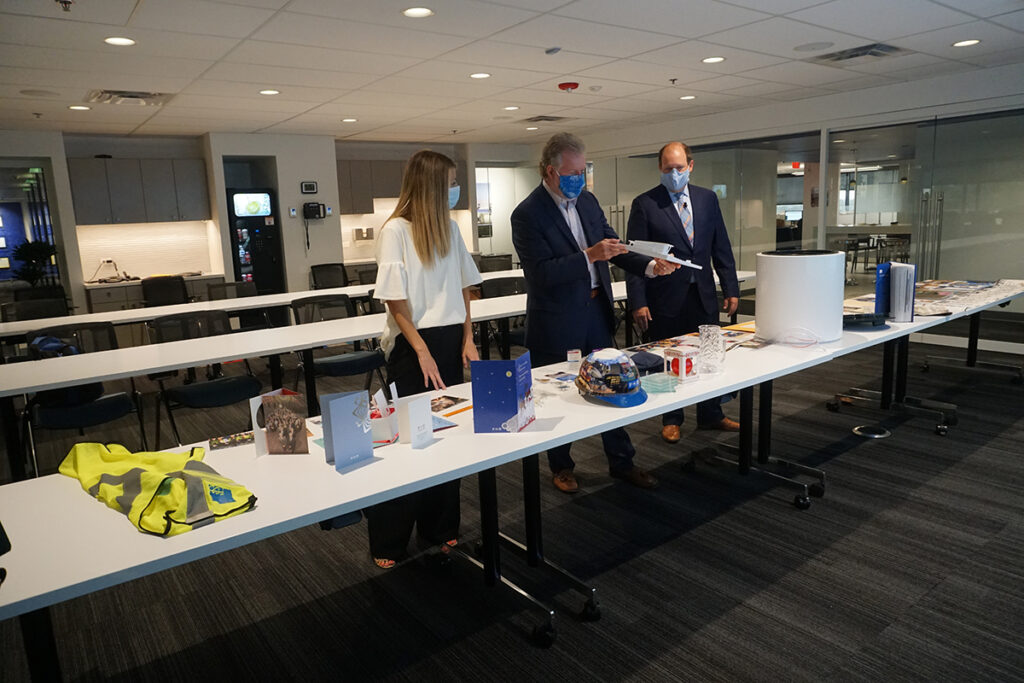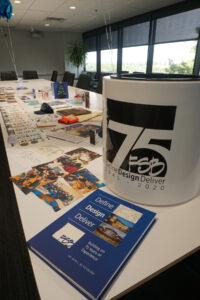Holding onto anything to do with the global nightmare of the coronavirus might seem unseemly because we are so weary of it, but FSB, the local architecture and engineering firm, is onto something with an interesting 25-year time capsule:
People in the future will want to see and touch things, not just read and watch videos about this awful time that is disrupting so much of life.

Employees of the firm, which will always be Frankfurt Short Bruza Associates to me, donated items for the time capsule to celebrate FSB’s 75th anniversary this year, and to set up celebration of its 100th anniversary in 2045. They sealed the capsule on Monday.
“Each of FSB’s more than 160 employees had the opportunity to submit something, and the capsule’s contents include mementos and symbols of life and work during the year 2020,” the firm said. “Many objects submitted by employees referenced the COVID-19 pandemic.
“Examples include 3-D-printed mask holders and face shields the firm produced and donated to OU Medicine this year and a letter from FSB President Philip McNayr in which he recounted the adjustments their team made to promote safety by extended work from home, masks in common areas, temperature checks and video conferencing with fellow employees, consultants and clients.”
McNayr said 75 years “is a major milestone, and even though the pandemic resulted in several canceled events, a time capsule has been an opportunity for us to acknowledge the anniversary creatively and personally. The capsule has also been a way for FSB to honor its deep ties to Oklahoma’s history, as well as its impact nationwide.”
McNayr contributed a book about FSB published this year by Bob Blackburn, executive director of the Oklahoma Historical Society. (I just ordered it to review). The book records the firm’s founding and key roles it has had on projects such as the Oklahoma Capitol dome addition and renovations.
Min Koo, director of structural engineering, donated an Air Force One pin he received for his design work on a new hangar at Joint-Base Andrews, the home base for aircraft used by the president.

Some employees “focused on their efforts to increase diversity and inclusion within architecture and engineering by encouraging students to consider careers in math and science.” FSB added a thank-you note from a grade school student at Adelaide Lee Elementary School for the firm’s $30,000 donation to support STEM programs.
“Twenty-five years from now, when the capsule is opened, we hope some of the students we’ve met or mentored will be working at FSB,” McNayr said.
The coronavirus story is not yet unfolded. Who knows what will happen, what people will remember, and how the artifacts of this time will be perceived in 25 years?
On a lighter and cooler note: The time capsule includes a 3-D-printed model of a design project FSB recently did for the Chickasaw Nation. Imagine how old and dated such amazing technology could seem in 25 years.